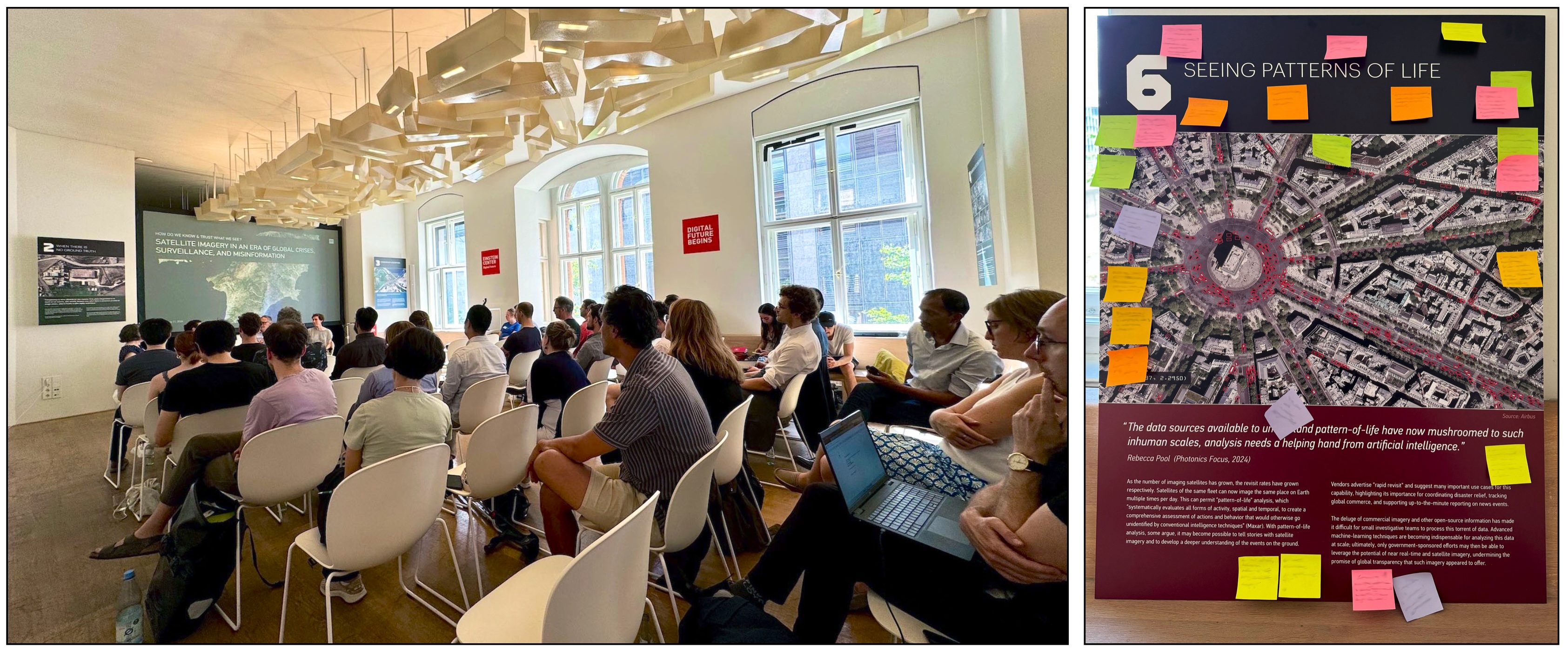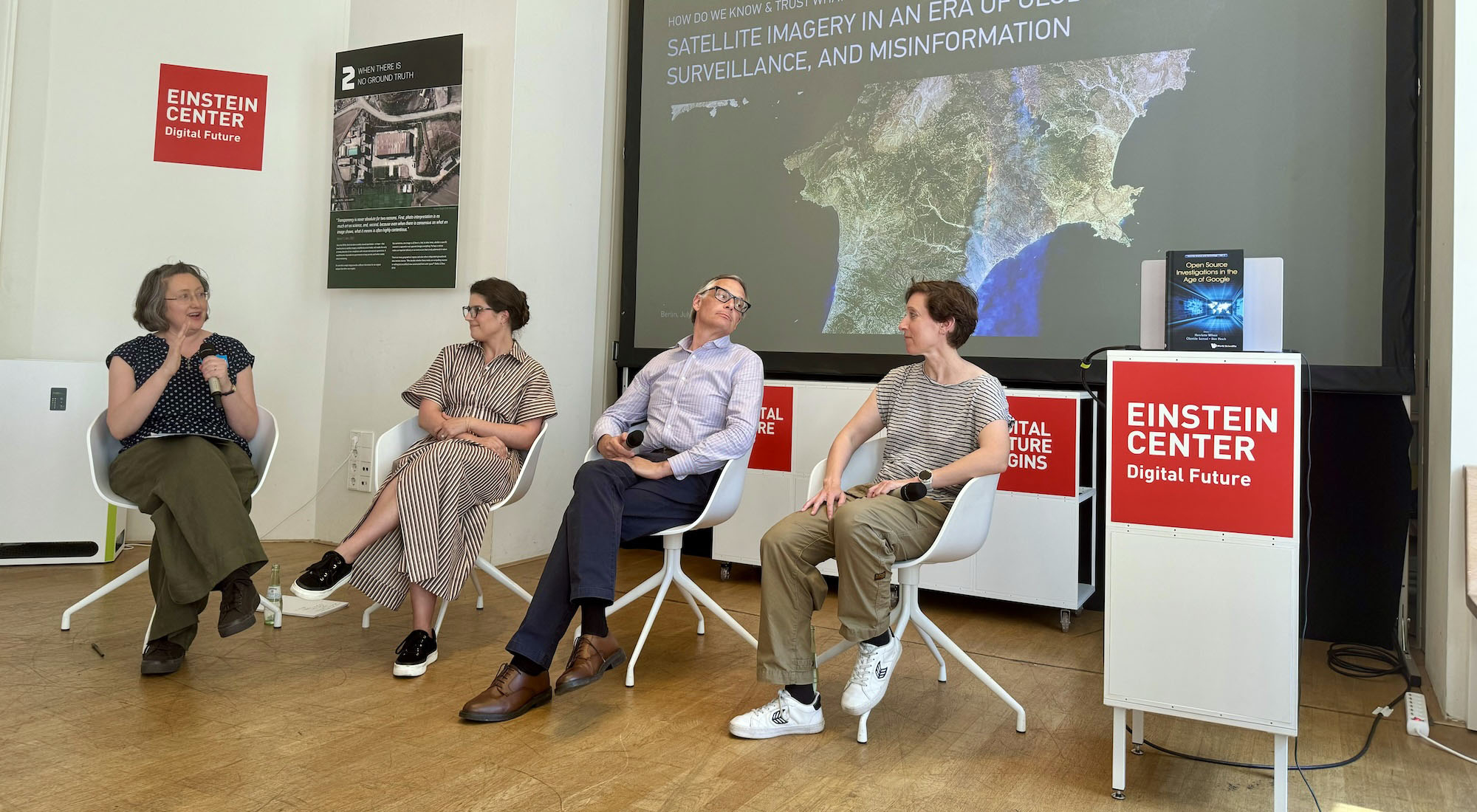At a time when we think everything can be made visible, how do we know what we see is true? What are the opportunities and limits of satellite imagery in helping us make sense of humanitarian crises, extreme climate events, and armed conflicts?
These were some of the questions we discussed during a panel discussion on July 11, 2024, in Berlin organized in partnership with the Berliner Hochschule für Technik (BHT) and the Einstein Center Digital Future (ECDF), with generous support by the German Foundation for Peace Research (DSF).
Satellite imagery has enabled more transparency and accountability in a globalized and networked world in allowing the public to monitor and make sense of ongoing conflicts, accidents, and natural disasters -- but there are important challenges and issues to consider as well.
Following a keynote presentation by Alison Killing, panelists reflected on the choices they make every day on what regions to image, who gets access to imagery and gets to tell the story, and why we are to trust what we see in these images.
These issues are becoming increasingly important as satellite imagery is becoming a prominent feature in news coverage in print, on television, and online. These images are also increasingly used in academic research and investigations led by NGOs and international organizations to make sense of events on the ground and to monitor locations in unprecedented detail and often in near real-time.
The panel discussion was organized around a workshop on the same topic, which included a gallery walk, during which participants engaged with a discussed topic highlighted in a series of posters prepared for this event.

About the speakers:
Alison Killing is an architect and investigative journalist. She is the founder of Killing Architects, a studio for architecture and digital media, based in the Netherlands. In 2021, Killing was awarded the Pulitzer Prize for International Reporting, together with Megha Rajagopalan and Christo Buschek for an investigation that uncovered a secret network of detention camps in Xinjiang, China. Killing leads the visual investigations team at the Financial Times.
Anne Pellegrino manages the Media and Think Tank Program at Planet, providing imagery to journalists and researchers for crisis response and Visual investigations.
Jeffrey Lewis is the director of the East Asia Nonproliferation Program at the James Martin Center for Nonproliferation Studies, Middlebury Institute of International Studies. Jeffrey is the founder of armscontrolwonk.com, a blog and podcast on disarmament, arms control, and nonproliferation.
Henrietta Wilson is a Senior Analyst for the Strategic Concept for the Removal of Arms and Proliferation (SCRAP) weapons programme at SOAS University of London, and is a Visiting Research Fellow and PhD student at King’s College London. She teaches modules on politics and international relations at UK universities. Henrietta Wilson is the co-editor of the new book Open Source Investigations in the Age of Google (World Scientific, June 2024, open access).
Alex Glaser is Associate Professor in the School of Public Affairs and in the Department of Mechanical and Aerospace Engineering at Princeton University. Glaser has been co-directing Princeton’s Program on Science and Global Security since 2016. For the work on nuclear disarmament verification, Glaser has been elected a Fellow of the American Physical Society in 2020. Glaser is an associated researcher with the Einstein Center Digital Future.
